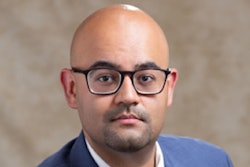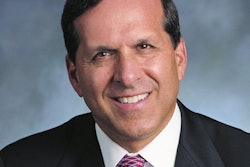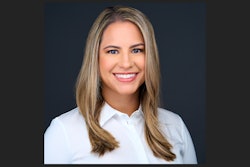Most U.S. dental practices participate with at least a few dental insurance plans. These may include Medicaid, Medicare, dental health maintenance organizations (DHMOs) or dental partnership organizations (DPOs), indemnity plans, exclusive provider organizations (EPOs), and preferred provider organizations (PPOs).
While some plans -- such as Medicaid or DHMOs -- offer fixed fee schedules that cannot be negotiated, a large number, particularly PPOs, allow room for adjustment. Despite this opportunity, most dental practices don’t renegotiate their PPO reimbursement rates.
 Dr. Kartik Antani.
Dr. Kartik Antani.
The reasons are understandable: It’s time-consuming, complex, and often overlooked entirely. Many dentists simply aren’t aware that renegotiation is possible. But it is, and it should be a core part of your business strategy.
Failing to renegotiate can result in leaving substantial revenue on the table, especially over the course of a career. Even modest increases in reimbursement, applied consistently across high-volume procedures, can lead to significant financial gains over time.
Why negotiating PPO fees matters
At its core, dentistry is both a clinical profession and a business. Like any business, the goal is to maintain a sustainable balance between the quality of services provided and the practice's financial health. There are two main ways to increase income:
- Produce more
- Increase the amount collected per procedure
While expanding production may work in the short term, it often increases stress, overhead, and wear and tear on the provider and the team. Increasing reimbursement rates, on the other hand, allows you to maintain or even reduce workload while improving profitability.
Every practice has a fixed overhead percentage. One of the simplest and most effective ways to improve your bottom line -- without changing your staffing, patient volume, or procedures -- is increasing what you collect per service. Renegotiating PPO fees directly improves profitability with minimal disruption to your operations.
How to renegotiate PPO fees
If you're comfortable navigating insurance relationships and have the administrative support, this process can be handled internally. However, due to the complexity involved, many practices partner with a third-party PPO negotiation firm. These companies specialize in handling fee analyses, navigating insurer policies, and advocating on your behalf.
If you're pursuing this in-house, here’s a general outline of the process:
- Create a list of all PPOs you participate with, including whether you’re credentialed directly or through a third-party network (like Zelis or Connection Dental).
- Request current fee schedules from each insurer.
- Identify your top 20 to 25 most frequently used Code on Dental Procedures and Nomenclature (CDT) codes.
- Compare your standard usual, customary, and reasonable (UCR) fees to the contracted reimbursement amounts.
- Note the largest discrepancies, particularly for high-volume procedures.
- Research average regional fees using UCR benchmarks or third-party data.
- Submit formal requests for fee increases, making a clear case for the adjustments.
- Follow up as needed, knowing that responses may vary, from denials to partial increases.
Even small wins on your top procedures can lead to thousands in additional collections each year.
When to negotiate PPO fees
Here are the ideal times to initiate negotiations:
- Buying a practice? Begin the process during credentialing.
- Starting a practice? Build negotiation into your insurance onboarding plan.
- Established practice? Revisit fee schedules every 12 to 24 months. Insurers won’t proactively offer increases. You must track and initiate the process yourself.
Conclusion: A strategic business move worth making
Negotiating your PPO reimbursement rates is one of the most strategic steps you can take to improve your dental practice’s financial health. While it may not be glamorous, it’s one of the few initiatives that directly increases revenue without increasing clinical workload.
Whether you handle it yourself or hire a firm to advocate on your behalf, the impact is real ... and lasting. In an industry where margins are tight and demands are high, smart negotiation can be the difference between working harder and working smarter.
Dr. Kartik Antani graduated from the Rutgers School of Dental Medicine and completed a one-year hospital-based general practice residency. He also holds a master's degree in biomedical sciences. He owns and operates Napa Family Dentistry. He is a winner of the New York Academy of Dentistry Ethics Award.
The comments and observations expressed herein do not necessarily reflect the opinions of DrBicuspid.com, nor should they be construed as an endorsement or admonishment of any particular idea, vendor, or organization.



















